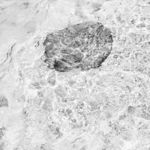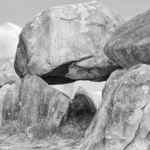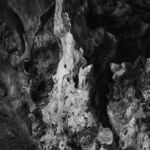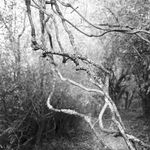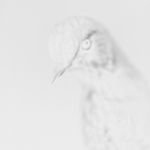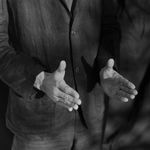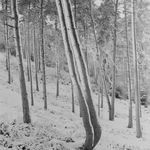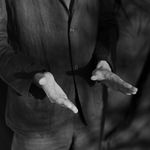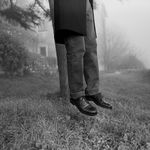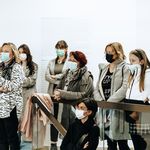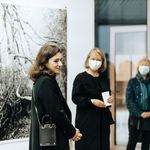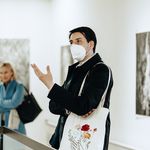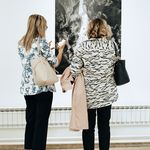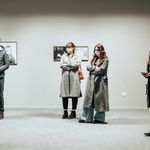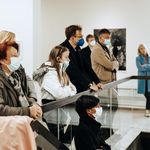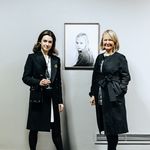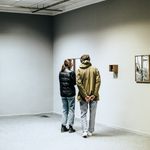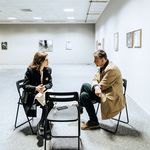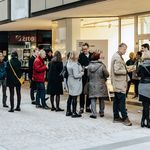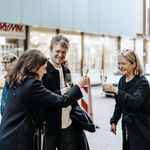Ana Zibelnik / The World is Ending Again

Ana Zibelnik / The World is Ending Again
UGM Studio, Trg Leona Štuklja 2
8 April – 19 May 2022
opening: Friday, 8 April 2022, 19:00
artist's talk: Friday, 8 April 2022, 18:00-19:00
curator: Simona Vidmar
Is the world about to end once again? The signs are all there: the seasons are post-modern, merging and becoming unrecognisable; the glaciers are no longer moving and are just a pile of dead snow; wind and fire are combining into fiery tornadoes and staging reenactments of a medieval doomsday; and people are once again building shelters in their homes, waiting for the end to come. The approaching end of the world has become the most popular topic of discussion, the subject of family lunchtime conversations, the inspiration for a new TV series, and the impetus for Friday's youth protests. And where are we right now? Will we be able to survive the everlasting fire, or will we be forced into cannibalism? One thing is certain: civilisation will decline slowly, and humanism will deteriorate gradually; there will be no big bang that shatters us into billions of particles and scatters us over space. The last groups of humans will wander the planet for a long time to come.
We encounter two photographic series by Ana Zibelnik—Immortality is Commonplace and We Are the Ones Turning—in this place of angst and excitement, paralysis and hope. The series "document" non-time and non-existence opposite to the typical experience of time and opposite to conversations about ecological problems, halfway between quiet activism and a shrug of the shoulders. Nature appears independent in the black and white photographs. It exists without the need to consider or feel it. Nature is the water that has been flowing on the planet for billions of years, magically regenerating itself through its various aggregate states each time. We sense the end of the world has already occurred and that time has come to an end. "All photographs are expectations: the most romanticised images of the crucial moment are records of an event that is perceived and expected to come," says the artist/choreographer character in Zibelnik's drama of quotations that accompanies the end of the world photo series. The images of Ana Zibelnik were exposed to light for a long time in order to capture the grace, magic, and contemplative aspect of the subject. We see reduction, emotion, and love. And there is fear. Fear of nature, which nourishes us and will eventually lead us closer to death. The World Is Ending Again is both something mundane and something so exceptional that it approaches abstraction.
Maribor Art Gallery is presenting the first solo show in Slovenia by a young photographer Ana Zibelnik (b. 1995, Ljubljana), based in The Hague, Netherlands. She holds a BA in Visual Communication from the University of Ljubljana and an MA in Film and Photographic Studies from Leiden University. Ana Zibelnik is the recipient of the GUP New Dutch Photography Talent Award 2020 and was selected by the British Journal of Photography: Ones to Watch in 2020. She explores the topics of death, longevity and the perception of time, intersecting them with ecology and reflecting on the current status of humans as actors on this planet. Her practice combines a research-based approach with poetic interpretation, often drawing inspiration from literature. “Ever since I started photographing, I have been preoccupied with the notion of death. An age old debate surrounding the photographic medium and a fascination shared by many photographers, the seeming ability of the photograph to steal moments of time and prevent them from “their proper corruption,’ as André Bazin famously said, was what caught my attention as a young student, too. After making my way through the classical readings, often intertwining them with the writings of Michel de Montaigne, St Augustine and the likes, I began to gravitate towards a more contemporary, daring account of the medium — of conceiving photography as a life-making practice. In short, a positioning of photography as a medium that, rather than bringing us closer to death, makes us feel duration, by making cuts and incisions into the stream of daily events. It makes it possible to perceive time. In light of the present day happenings, an era most often defined by the threat of extinction, the possibility of death is brought to an entirely new level. My thematic interests, reflected in the two works to be exhibited, We Are the Ones Turning and Immortality is Commonplace, thus span the extremes of mortality and the uniquely human position of being aware of and fearing death, and immortality, exploring the non-human timespans that inevitably surround us.” (Ana Zibelnik)
You can read the artist´s CV here.
At UGM we met the promising photographer at PARALLEL, a European platform for the international promotion and education of young European photographers, of which the Maribor Art Gallery is a founding member.
About the photographic series:
IMMORTALITY IS COMMONPLACE, 2020-ongoing
Lichens, the symbiotic growth of algae, fungi and bacteria, become less likely to die as they grow older. Some examples in the Arctic region are estimated to be between 3,000 and 8,000 years old, making them one of the longest-living organisms on the planet. They grow at exponentially slow rates and are usually among the first organisms to colonise landscapes after natural disasters. Lichens’ composite nature shows how it is collaborative effort rather than individuality that keeps ecosystems going. The sense of urgency sparked by the looming ecological crisis, devastating bushfires and the onset of the global pandemic allows us to see such organisms in a new light. Under stable conditions, lichens can far outlive current generations, and even photography as a medium. Yet, they are not immune to sustained environmental pressures and the effects of pollution caused by industry. Photography, commonly defined as a practice that preserves life by representing it, is suddenly facing a new challenge. What does it mean to photograph something immortal? What happens when we place photography into the larger, nonhuman history of the world, or, as Timothy Morton suggests, try to think of it on earth’s magnitude?
In environmental narratives, we often see ourselves as the main actors and those in power. Reflecting on that, Slovenian philosopher Alenka Zupančič notes: ‘The world will surely end, but it won’t be the end of our troubles,’ pointing to the fact that the environmental crisis is exclusively social, and we are in fact the ones facing a problem.
Immortality is Commonplace investigates how photographing extraordinarily durable organisms in times of ecological instability challenges the notion of photography as a practice that immortalises. ◊
1 minute video presentation here.
WE ARE THE ONES TURNING, 2019-2020
Mortals are those who experience death as death. In this sense, human beings are identified by an awareness of the fact that they are running out of time; an awareness which is reinforced and revisited simply by living.
We are the ones turning explores how we grapple with the “possibility of impossibility” in everyday life — a topic that extends far beyond the fear of death and can deeply affect our perception of time. Zibelnik offers a distinctly human perspective on death, juxtaposing it with scenes from nature, where temporalities far larger than our own exist. She combines the prosaic with the uncanny, the sentimental with the insensible, thus contrasting the mechanical flow of time, symbolised by the clock, with our experience of it. The gesture of the turning hands, which sets the rhythm of the series as its Leitmotif, is derived from American Sign Language, where it indicates the notion of death.

